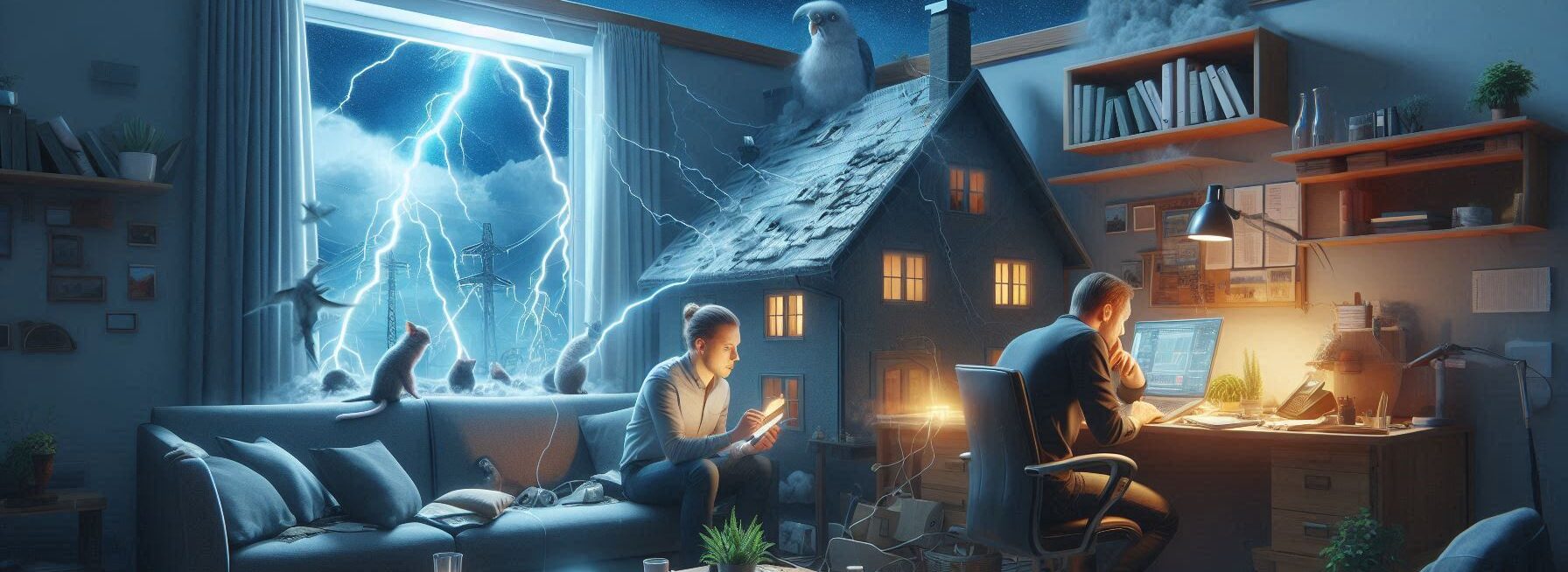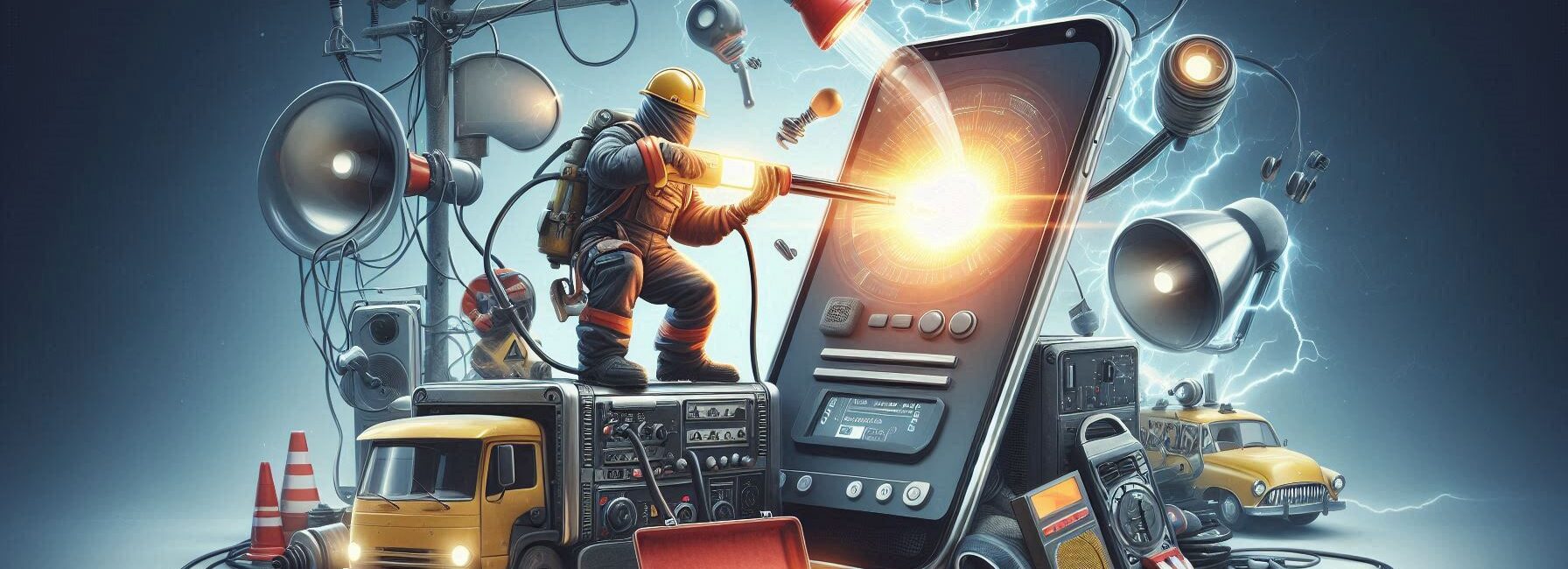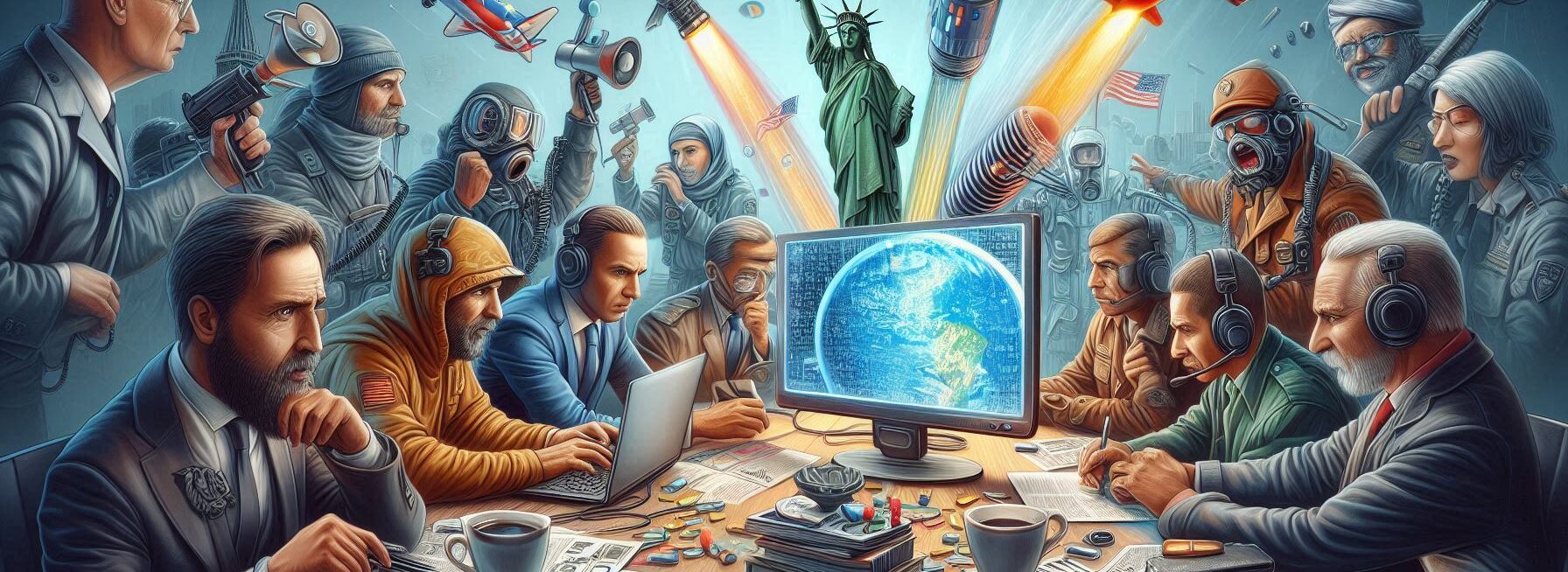Please Note: This post may contain affiliate links. If you click one of them, we may receive a commission at no extra cost to you. As an Amazon Associate, I earn from qualifying purchases.
Last Updated on November 2, 2025 by Kevin Collier

Top Takeaways and Key Concepts
– Assess available communication tools and their reliability in emergencies.
– Create a list of key contacts for quick communication access.
– Establish a primary and secondary communication method for backup.
– Practice regular drills to ensure everyone understands the communication plan.
– Stay updated on new technology and methods for improved connectivity.
In a world full of smartphones and Wi-Fi, it’s super easy to forget just how quickly everything can disappear. One minute you're scrolling through your favorite app, and the next—whoops! The power’s out, and your phone’s gone kaput. Yikes!
Imagine you're out camping with friends, soaking up the fresh air. Everything's great until—bam! Darkness falls. Your phone’s dead. Suddenly, you’re left yelling across the campsite like you’re trying to become an actor in a wild adventure movie. Not exactly cozy, right?
That’s why thinking ahead is key. Building a backup plan for communication can really save the day when things go sideways. It’s like having a secret tool in your backpack. You can use walkie-talkies or even old-school techniques like maps and compasses. Yep, those still work!
Think about it. If your phone’s out of juice, having a backup means you can still connect with your pals. Everyone likes a little reassurance—especially when the sun goes down, and shadows seem to grow taller. You can send a signal or even whistle. It might sound silly, but you’ll be glad you did.
Feeling safe out there is a big deal. You want to enjoy nature, not stress about getting lost. So, gather a few walkie-talkies. Practice with them. Make some signals. Practice drawing a quick map. It’s fun and builds confidence!
You’re not just preparing for a camping trip. You’re amping up your adventure game! So, get creative with your backup plans. Even when technology plays hard to get, you’ll still be ready for anything. Adventure awaits, my friend!
Assess Your Needs
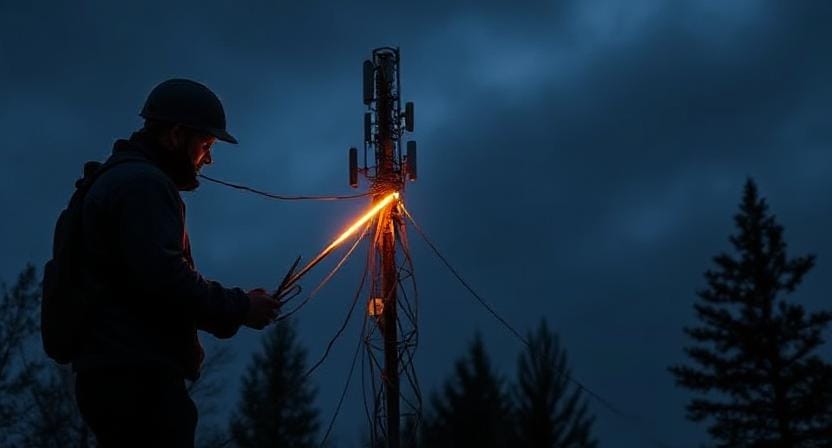
*** Shop for Survival Gear - Tools - Kits ***
Survival Gear - Bags and Backpacks - Knives - Boots/Footwear - Communication
Outdoor Cooking - Gloves - Hydration - Dry Boxes - Water Filtration Systems
Tents - Sleeping Bags - First Aid Kits - Multi-Tools - Flashlights - Fire Starters
Navigation - Survival Food - Night Vision - Headlamps - Stun Guns - Binoculars
Before we get right into the world of backup communications, let's take a moment to think about what you really need. Do you want to be able to talk to your family amid emergencies?
Are you going on a hike where you won't be able to get mobile service? You can avoid yourself from buying things that you might never use (or worse, use as doorstops) by first figuring out what you really need.
For example, if you often go off the grid or into isolated places, two-way radios can be the ideal option for you. They're great for fast conversations that don't need cell towers or satellites. This is great for when someone goes off to look for “the biggest mushroom ever.”
But if all you want to do is stay in touch with family during natural catastrophes, think about making group chats on messaging applications and making sure everyone has backup power sources.
Pick Your Tools Carefully
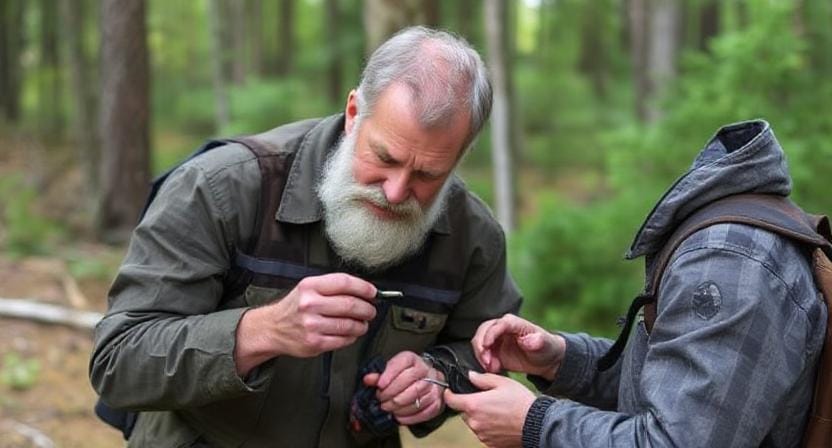
It's time to talk about gear now that you've thought about what you need. To be honest, there are a lot of things you can do today that will make you feel like you're getting ready for a sci-fi movie. There are so many options, from ham radios to satellite phones to good old-fashioned walkie-talkies.
Let's see… You need to have a license before you can use ham radios lawfully, even if you think they sound cool (and they are). This isn't only about looking good; it also makes sure you know how to talk to others in a responsible way.
If you like things that are easy, though, walkie-talkies are great for short distances and don't need much setup.
And don't forget about chargers that work with solar power! These little wonders will keep your electronics going long after regular batteries have died. You never know when Mother Nature will throw a party out of the blue!
Set Up Rules On How To Talk To Each Other
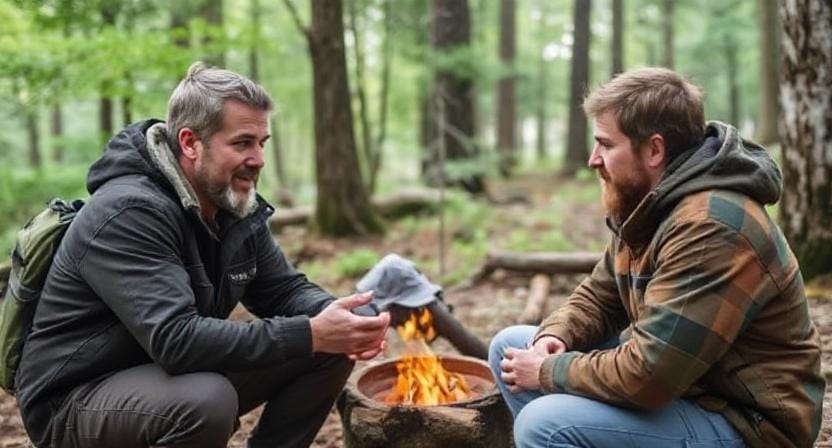
Once you've put together all this cool gear, like a group of survivalist superheroes (think Avengers but with less spandex), it's important to make sure everyone knows how to talk to each other.
What does this mean, exactly? Well, think of it as making standards for how everyone should use these instruments safely whether they're out and about or in an emergency. For instance:
– Give Call Signs: Instead of using real names, which can be confusing when people are scared, give people humorous call signs based on their personalities or inside jokes.
– Set Check-In Times: If you're hiking alone but still want to know what's going on without all the talking getting in the way of nature's symphony of bird melodies and rustling leaves.
– Set up emergency signals. They might be anything from three loud blows on a whistle to sending smoke signals (unless you're feeling really brave, don't do that).
Setting these rules in stone helps keep things from getting out of hand when every second matters!
Practice Makes Perfect
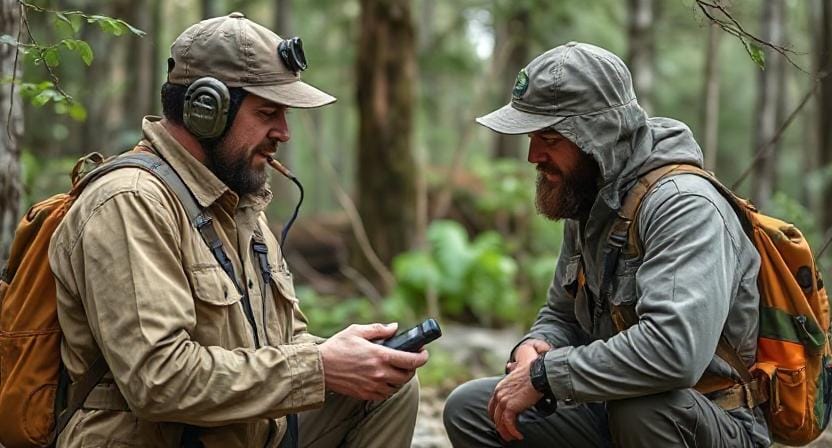
In the end, having great tools and procedures won't help much if no one knows how to utilize them right! That's why it's important to practice, just like it's important to practice lines before trying out for a school play.
Plan regular exercises where everyone gets used to their gear and practices emergency situations together (although not real emergencies—we'd rather not have those!). That way, people won't have to fumble around and attempt to look smart when their radio suddenly crackles back at them.
Strangely, training also boosts the group's confidence so that no one feels left out or powerless if something goes wrong in real life later on.
Keep Up with Technology Trends
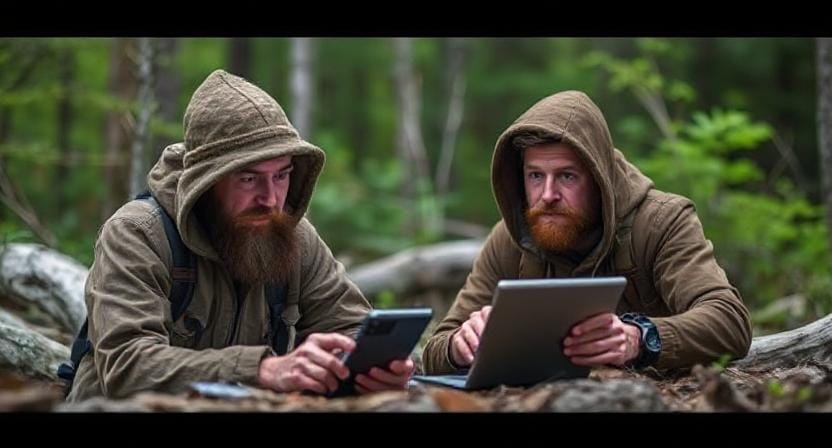
Speaking of being ready, it's really helpful to keep up with new technology trends that have to do with backup communications! Knowing what's out there helps keep our networks running smoothly over time, especially because new items come out faster than I can complete my morning coffee (which says a lot).
Sign up for online forums where outdoor lovers share tips on which devices work best in different situations. Read blogs that only talk about recent advancements in radio technology. Join local amateur radio clubs where members regularly share knowledge. All of these things will help us stay smart as things change!
Have Fun With It!
While you're putting up your backup communication network, don't forget to have fun! I mean, who wants to feel like all that work is a chore? Adventure is waiting for us just beyond our doors.
Think of all the fun times you may have with your family and friends. Roast marshmallows around a campfire and tell each other funny anecdotes about times when you didn't understand each other. Do you remember when someone got lost and found an ancient cabin in the woods? How awesome is that?
Those funny stories make everything worth while. Of course we get ready for the bumps in the path. But the surprises are what make our experiences so special.
So get your friends together and come up with exciting methods to stay in touch, even when things don't go as planned. You can give each other goofy signals or even texts that are hilarious. You could even turn it into a game!
Picture this: You're camping, and someone reads the map wrong. You all laugh instead of freaking out and make it a treasure hunt. It's amazing how laughter can change a tough time into one you'll always remember.
Be ready, but don't simply be ready. Be happy and ready! That's what makes it all worthwhile. So get outside, see new things, and build great memories along the way!
Frequently Asked Questions
Why is a backup communication network important?
It ensures you can contact others if phones fail, power is out, or signals are unavailable.
What tools are most common for backup communication?
Two-way radios, walkie-talkies, ham radios, satellite devices, and even whistles or maps can serve as backups.
Do ham radios require a license?
Yes, in most regions you need a license to legally operate certain ham radio frequencies and equipment.
Should I create a communication contact list?
Yes, a written and easily accessible contact list helps ensure you know exactly who to reach in emergencies.
How often should backup communication drills be practiced?
Regular drills, such as monthly or quarterly, keep everyone familiar with the plan and tools.
Are solar chargers useful in communication backups?
Yes, solar chargers allow devices to stay powered when grid electricity is unavailable.
Should I stay updated on new technology?
Yes, new tools and updated devices improve reliability and may offer better range or durability over older equipment.
Suggested External Resources:
Ham Radio Basics
https://www.arrl.org/ham-radio-basics
Emergency Communication Strategies
https://www.ready.gov/communication-strategies
Two-Way Radio Buying Guide
https://www.rei.com/learn/expert-advice/two-way-radio-buying-guide.html

Kevin Collier is a seasoned survivalist and expert in prepping and homesteading, contributing to WiseSurvive.com. With a deep-rooted passion for self-sufficiency and outdoor survival skills, Kevin shares practical advice, strategies, and resources to help individuals prepare for any challenge. His informative articles cover a range of topics, from essential survival techniques to sustainable living practices, empowering readers to thrive in any situation. Whether you're a novice or a seasoned prepper, Kevin's insights will inspire you to take charge of your readiness and build resilience for the future.


